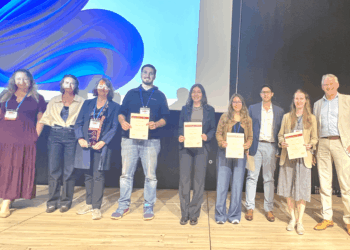In the context of healthcare, translating knowledge generated through research into clinical applications is essential. Knowledge translation (KT) encompasses a collection of strategies, including synthesis, dissemination, and implementation, all aimed at ensuring that research findings are accessible and applicable to end-users. This is particularly critical in specialised areas like pediatric oncology, where the urgency of translating research into effective treatments can significantly impact survival of patient.
Despite the existence of established frameworks for KT, it seems that a motivating attitude such as curiosity is required to positively drive these strategies. Curiosity can serve as a catalyst for effective KT, empowering medical researchers to make more sustained impacts. For instance, pediatric cancer researchers who adopt a curious mindset are more inclined to investigate not only the novel therapeutic strategies but also question the existing therapies through skepticism and implement more efficient approaches for children affected by cancer. Engaging with patients, caregivers, and healthcare providers helps to identify barriers to implementation and develop strategies that are both contextually relevant and easier to adopt.

In the field of pediatric cancer, a curious researcher might use multimedia formats and social media platforms not only to educate families, but to also share success stories and research updates with a broader community. Such innovative approaches can significantly increase the impact of research, making it more likely that evidence-based practices in pediatric oncology will be embraced.
The reciprocal nature of curiosity also strengthens feedback loops between researchers and stakeholders, ensuring that research remains relevant to the real needs of those who are mostly affected by its results.
Furthermore, curiosity promotes a culture of lifelong learning among practitioners. When curiosity is encouraged, healthcare professionals are more likely to engage with ongoing education and stay updated on the latest research developments. For example, as new therapies emerge or clinical trial results are disseminated, curious practitioners are better positioned to incorporate these advancements into their practice, thus providing the highest quality of care.
In summary, curiosity serves as a vital driving force within the KT landscape, particularly in specialised fields like pediatric oncology. By fostering a culture that prioritises inquisitiveness and exploration, researchers can significantly enhance their KT efforts, ensuring that research findings are effectively disseminated and implemented. Looking ahead, cultivating curiosity on KT practices could boost bridging the gap between knowledge production by research and its practical impact in the fight against pediatric cancer.
 About the author:
About the author:
Azadeh Kiumarsi, MD, is a Pediatric Hematologist Oncologist at Children’s Medical Center Hospital, affiliated with the Department of Pediatric Hematology, Oncology, and Stem Cell Transplantation at the School of Medicine, Tehran University of Medical Sciences, Tehran, Iran. She has a commitment to advancing the care and treatment for children with hematologic and oncologic conditions and she actively engages in research activities in order to bridge the gap between clinical practice and innovative treatment strategies. Email: akiumarsi@sina.tums.ac.ir
About this article
This is one of our shortlisted entries for the 2024 EACR Science Communication Prize themed around our #KeepResearchCurious campaign. Choosing a winner was incredibly difficult and we’re delighted to share our shortlist with you.
The header image of this article was created using AI.



 About the author:
About the author:




